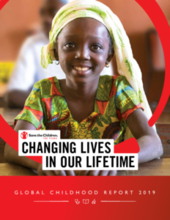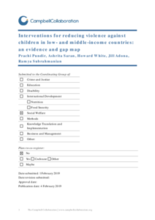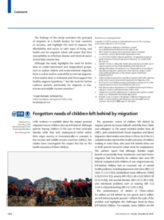Displaying 541 - 550 of 1343
In commemoration of its founding 100 years ago, Save the Children is releasing its third annual Global Childhood Report to celebrate progress for children.
This volume provides readers around the globe with a focused and comprehensive examination of how to prevent and respond to child maltreatment using evidence-informed public health approaches and programs that meet the needs of vulnerable children, and struggling families and communities. Detailed guidance is provided about how to re-think earlier intervention strategies, and establish stronger and more effective programs and services that prevent maltreatment at the population level.
Through systematic and strategic searches, the authors explored the existing trends of Family Group Conference (FGC) research in indigenous contexts.
This evidence and gap map will provide an overview of the existing systematic reviews and impact evaluations on the key outcome domains and interventions aimed at reducing violence against children in LMICs using an intervention-outcome framework.
This latest report takes stock of the shifting global context and increasing movement to end corporal punishment.
Out of the shadows: Shining light on the response to child sexual abuse and exploitation - a 40-country benchmarking index - examines how countries are responding to the threat of sexual violence against children.
The Routledge Handbook of Critical Social Work brings together the world’s leading scholars in the field to provide a cutting-edge overview of classic and current research and future trends in the subject.
The aim of this meta-analysis is to identify the most effective interventions to promote parental engagement and family reunification in high-income countries.
This chapter from the Handbook of Parenting and Child Development Across the Lifespan explores five domains of research connecting social support and parenting: (1) intergenerational transmission of parenting; (2) community and neighborhood; (3) marriage quality; (4) grandmothers; and (5) offline and online friends.
This systematic review of children left behind by migrant parents by Gracia Fellmeth and Kelly Rose-Clarke and colleagues in The Lancet included studies from all LMICs, and considered both forced migration and labour migration.




